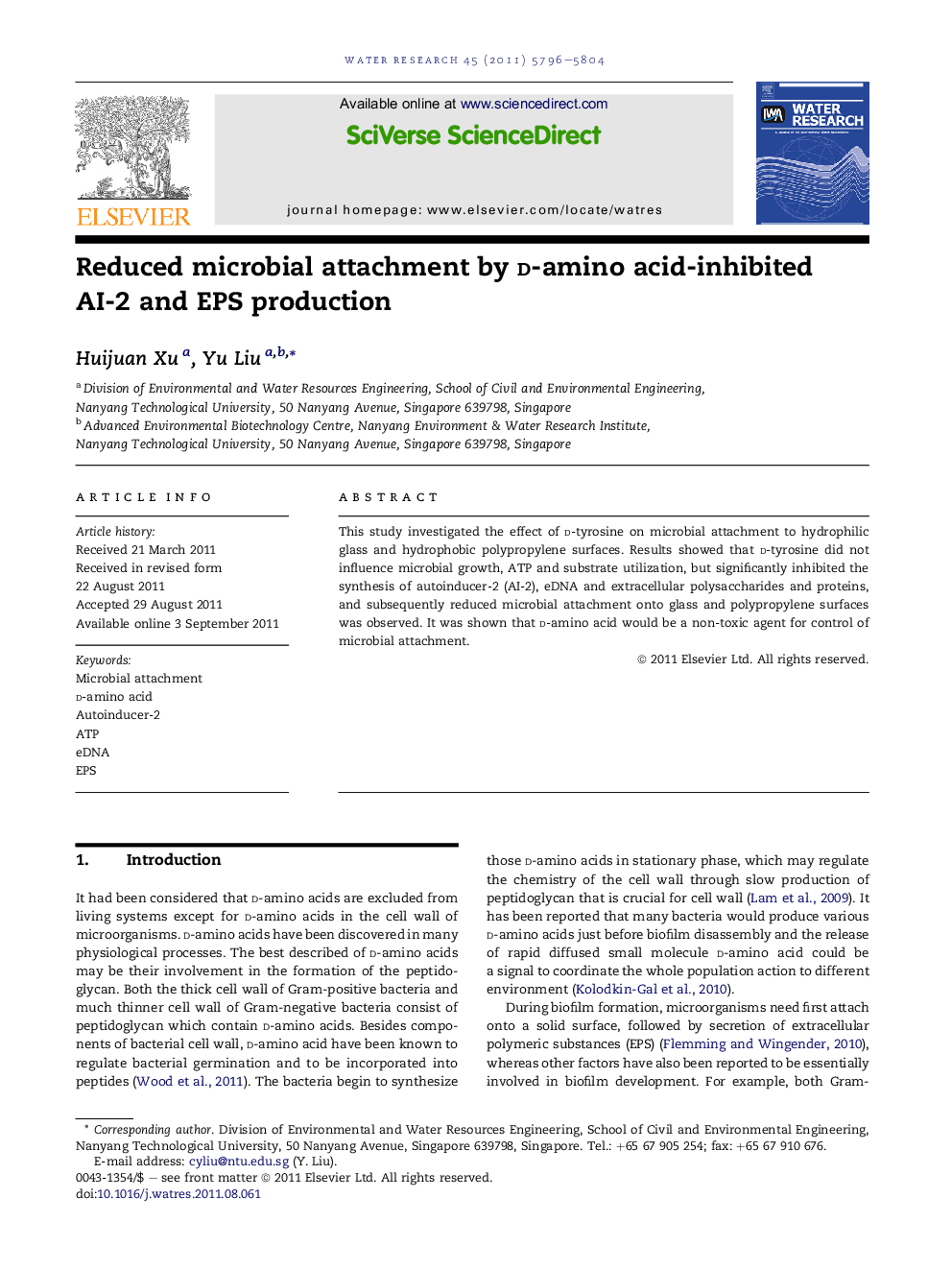| Article ID | Journal | Published Year | Pages | File Type |
|---|---|---|---|---|
| 4483199 | Water Research | 2011 | 9 Pages |
This study investigated the effect of d-tyrosine on microbial attachment to hydrophilic glass and hydrophobic polypropylene surfaces. Results showed that d-tyrosine did not influence microbial growth, ATP and substrate utilization, but significantly inhibited the synthesis of autoinducer-2 (AI-2), eDNA and extracellular polysaccharides and proteins, and subsequently reduced microbial attachment onto glass and polypropylene surfaces was observed. It was shown that d-amino acid would be a non-toxic agent for control of microbial attachment.
Graphical abstractFigure optionsDownload full-size imageDownload high-quality image (228 K)Download as PowerPoint slideHighlights► d-tyrosine reduced microbial attachment onto glass and PP surfaces. ► d-tyrosine did not influence microbial growth and substrate utilization. ► Inhibition of AI-2 and EPS by d-tyrosine was responsible for the reduced attachment. ► It provides a mean for biological control of microbial attachment on solid surfaces.
